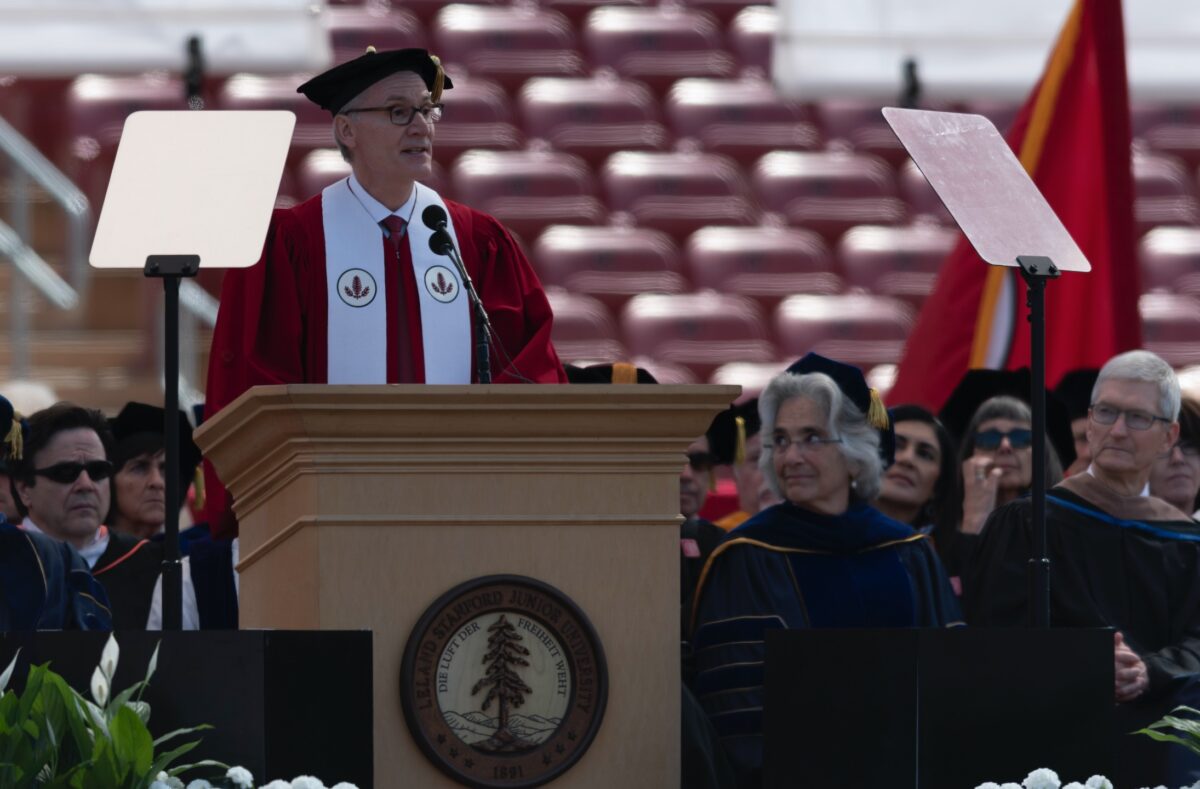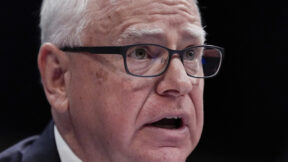Stanford University President Resigns After Probe Discovers Flaws in His Scientific Research

Photo by Yichuan Cao/Sipa USA via AP Images
The president of Stanford University announced his upcoming resignation after the school’s student newspaper broke the story that his scientific works were being scrutinized for flawed research and manipulated data.
Before his seven years as Stanford University president, Marc Tessier-Lavigne was a neuroscientist whose research focused on causes and treatments of degenerative conditions like Alzheimer’s and Parkinson’s disease. In his scientific role, Tessier-Lavigne oversaw laboratories, conducted research and published studies with his various findings.
The integrity of Tessier-Lavigne’s work was called into question back in November when the university’s student newspaper, The Stanford Daily, reported that the European Molecular Biology Organization was reviewing a paper he co-authored due to concerns of “scientific misconduct” involving altered images in his research. The Daily followed this up in February when Theo Baker, the son of journalists Peter Baker and Susan Glasser, reported that Tessier-Lavigne co-authored a paper on Alzheimer’s that held “falsified data,” and Tessier-Lavigne allegedly tried to cover it up at the time as a top executive of the Genentech biotechnology company.
These reports come after Tessier-Lavigne’s co-authored works came under scrutiny years ago because of altered image concerns. Stanford’s Board of Trustees launched an inquiry of Tessier-Lavigne’s works in December, and the investigation discovered more flaws in his past projects.
The probe found that Tessier-Lavigne did not know about the misrepresentations in his work, and it cleared him of the charge that he engaged in “fraud or falsification of scientific data.” However, after reviewing five papers he wrote and seven more that he co-authored, it was determined that his work contained inappropriate manipulations of data, faulty research, and Tessier-Lavigne didn’t actively try to rectify these flaws after they were published.
Tessier-Lavigne released a statement on Wednesday acknowledging the flaws in his research, saying “I agree that in some instances I should have been more diligent when seeking corrections, and I regret that I was not. The Panel’s review also identified instances of manipulation of research data by others in my lab. Although I was unaware of these issues, I want to be clear that I take responsibility for the work of my lab members.”
From the statement:
I am gratified that the Panel concluded I did not engage in any fraud or falsification of scientific data. Specifically, the Panel did not find that I engaged in research misconduct regarding the twelve papers reviewed, nor did it find I had knowledge of or was reckless regarding research misconduct in my lab.
As I have emphatically stated, I have never submitted a scientific paper without firmly believing that the data were correct and accurately presented. Today’s report supports that statement.
Although the report clearly refutes the allegations of fraud and misconduct that were made against me, for the good of the University, I have made the decision to step down as President effective August 31.





Comments
↓ Scroll down for comments ↓